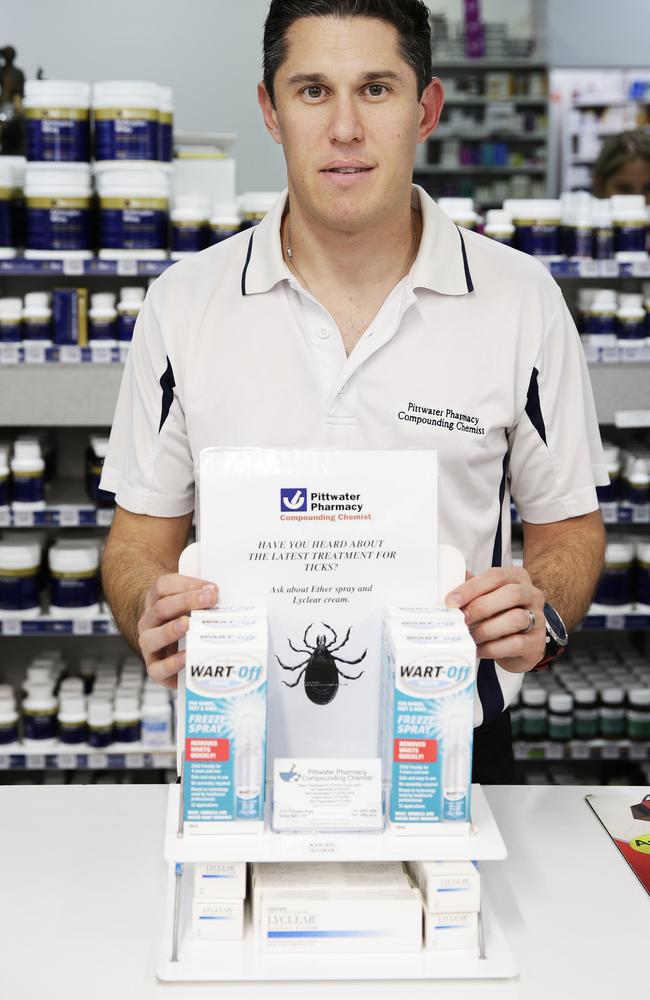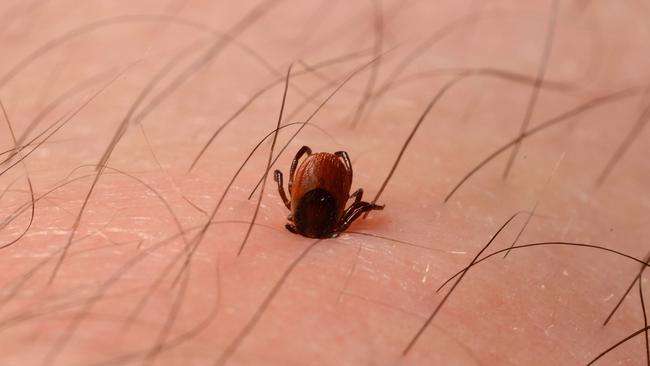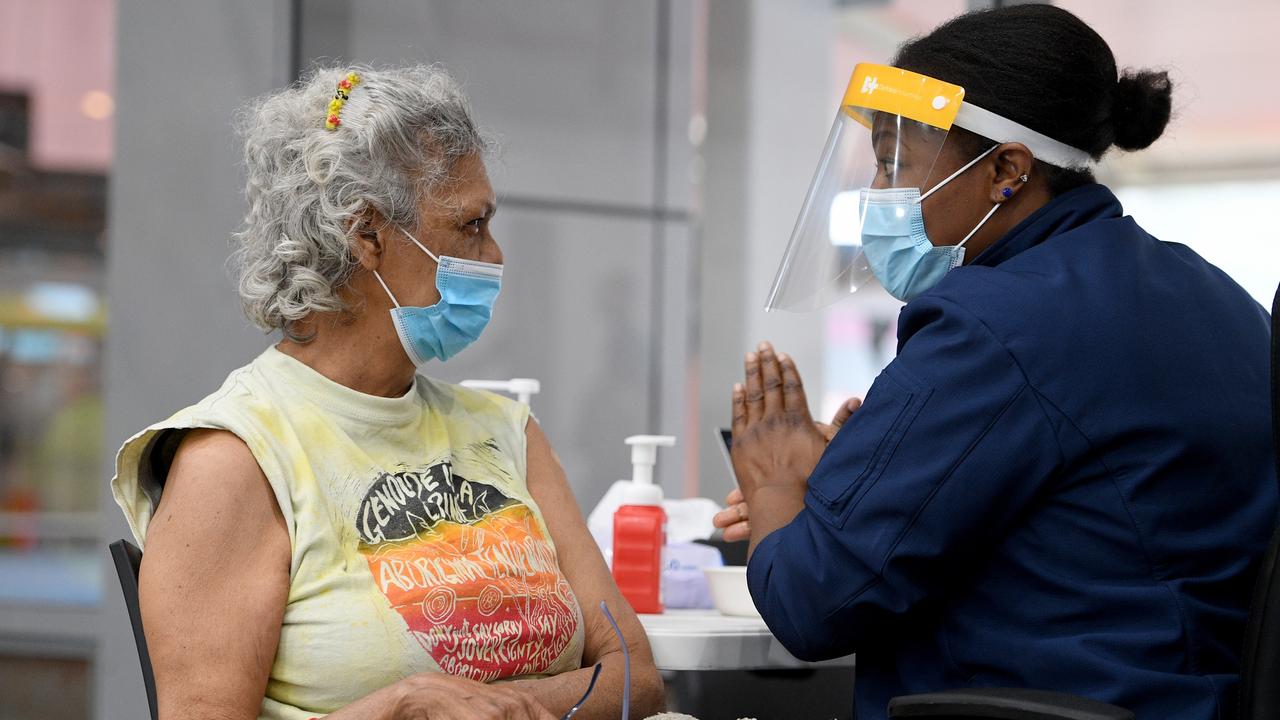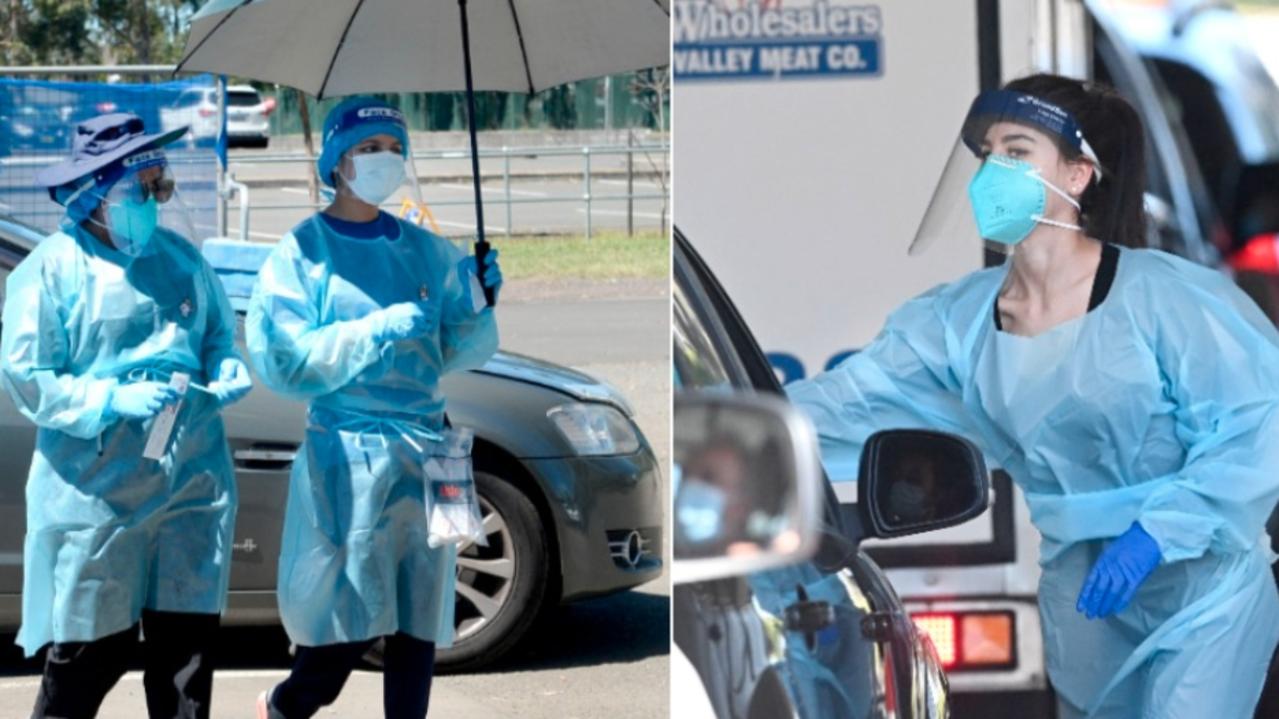Increase in people and pets being bitten by ticks, as MP Rob Stokes warns of ‘tick toxicity’ on northern beaches
TICKS are leaving people and animals sick on the northern beaches as vets and doctors reveal dramatic increase in cases and serious anaphylactic reations. Here’s a guide on what to do.
Nth Beaches
Don't miss out on the headlines from Nth Beaches. Followed categories will be added to My News.
- Woman nearly dies from meat pie after tick bite
- Boy picks up 30 ticks playing in park
- Family’s tick bite allergy hell
A NORTHERN beaches pharmacist has warned of a dramatic increase in people seeking help for tick bites in the past year with some victims suffering serious reactions, including huge welts, as well as developing a serious allergy to meat after being bitten.
Andrew Snow, from Pittwater Pharmacy, said he sees more than 10 people a week seeking help removing ticks or for reactions to tick bites – a large increase on a year ago.
He said some of his customers were going on to develop meat allergies, caused by tick bites, or an illness similar to Lyme disease.
“We are seeing larger numbers of people with tick bites and, more concerning, is the reactions to these bites are getting worse,” Mr Snow said.

“People are coming to us with huge welts or areas of red inflammation around the bite sites. Others are suffering from headaches, fever or shivers.”
It comes after MP Rob Stokes recently spoke in State Parliament about how tick toxicity was a growing public health concern across much of the northern beaches, with Avalon, Clareville and Bayview particular hot spots.
He said in these areas, residents and their pets face significant problems with ticks.

Mr Stokes’ sister, Dr Jennifer Wingham, who works at the Mona Vale Veterinary Hospital, told him they treat 300 animals for tick-related illnesses and tick toxicity.
But the problem for humans was even more serious.
“Indeed, whilst tick toxicity is a problem for animals, anaphylaxis from ticks is significant and growing among adults and children in my electorate,” Mr Stokes said.

“I have had the opportunity of meeting many people who have suffered some shocking meat allergies as a result of being bitten by ticks.”
He said Clinical Associate Professor Sheryl van Nunen, based at Royal North Shore Hospital, first discovered the association between anaphylaxis and meat from mammals caused by ticks.
Mr Stokes said Dr Andy Ratchford, from Mona Vale District Hospital, treated hundreds of people bitten by ticks every year.
“This is a serious public health issue and it is important that members communicate this risk to their communities,” he said.
“It may seem like a small issue, but it is having real effects on people.”

Mr Snow said advice on how to safely remove a tick had changed in the past couple of years and they no longer recommended using tweezers because when a tick is squeezed it can release allergen or toxins into the body.
Instead he said people should use a freezing agent such as Wart-Off to freeze adult ticks and for tiny larval or nymph ticks to use a cream containing permethrin, such a Lycream.
Mr Snow said people needed to let the ticks drop off by themselves, which can take one to three hours.
To watch a video on how to remove a tick go to manlydaily.com.au.
FAST FACTS
Tick bites can cause mild to life-threatening allergic reactions to mammalian meats such as beef, pork, lamb, kangaroo, goat and venison.
Some people are so sensitive to alpha gal, they react to mammal products, particularly, their milks and gelatine. Any product derived from mammals may cause allergic reactions, making avoidance very difficult as the allergen may be found in a wide range of agents used in medical treatments, as well as in foods.
Tick bites may result in allergic reactions to the ticks themselves, including anaphylaxis, and, rarely, there have been fatalities.
Crucially, people who suffer an anaphylactic reaction to a tick only do so when the tick is disturbed.
Swellings at the site of a tick bite can occur before either mammalian meat allergy or tick anaphylaxis appears.



